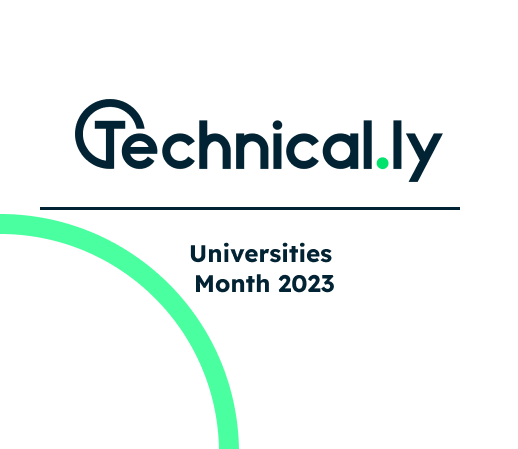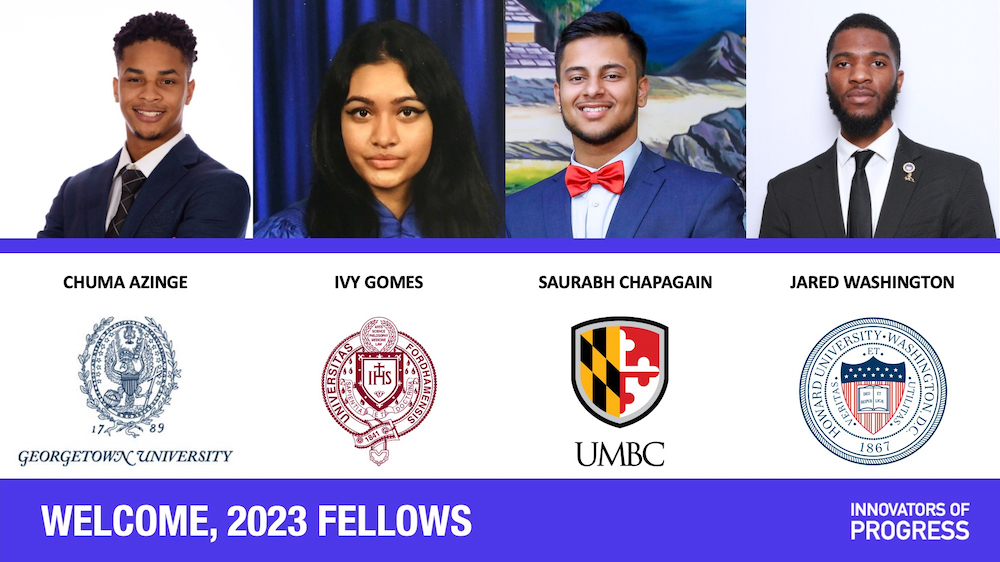
This editorial article is a part of Universities Month 2023 in Technical.ly’s editorial calendar.
Markus Proctor established the Innovators of Progress pre-accelerator program to fill a gap he saw in Maryland’s entrepreneurship ecosystem — a world he thought did not cater to young adults enrolled in post-secondary education programs who aspire to become entrepreneurs.
Growing out of an idea the DC-area resident first solidified in late 2019, Innovators of Progress focuses on applicants in areas such as science, technology, engineering and healthcare who wish to make a positive impact. Proctor’s objective was to provide a supportive platform for this specific group of individuals who were not adequately served by existing entrepreneurship pipelines before the pandemic. This “self-funded” program also aims to build a talent pipeline that transitions students into full-time founders of technology-enabled ventures. Innovators of Progress relies on a rigorous application process to select the most promising student fellows.
We previously reported that Proctor, with this cohort, sought to prioritize access and equity — particularly when he earmarked two slots for students at any historically Black college or university (HBCUs) across the country. This year’s group consists of students from various schools across the country, with Jared Washington of Howard University being its only HBCU pupil.
Proctor said that this year’s selection process involved selection committee members using a rubric to evaluate applicants on qualities, as outlined in a presentation deck, like passion, purpose, readiness, ingenuity, humility and grit. Selection committee members included such regional tech and innovation leaders as Innovation Works’ Jay Nwachu, Hutch/Fearless’ Stephanie Chin and Marianna Pappas of Conscious Venture Lab; the last of these entities maintain a partnership with Innovators of Progress, whose alums can apply to Conscious Venture Lab and earn as much as $125,000 in additional capital.
“The rubric aided committee members in evaluating each application based on various criteria,” Proctor told Technical.ly. “The highest-scoring students are then invited to participate in the program.”
A full list of the committee members is available on Innovators of Progress’ site. Now that the selection process is over, the four innovators in the 2023 cohort will spend the next ten weeks conducting at least 50 customer discovery experiments to gain a deep understanding of their target audience and the problem they’re trying to solve.
“This process is crucial for developing a customer-centric solution that meets the needs of the market,” Proctor said.
Proctor also says informal discussions, centered “on finding ways to collaborate and support the student entrepreneurship ecosystem together,” have been held with staff at the University of Maryland and the University of Maryland, Baltimore.
While the program’s success relies heavily on the support of its partners like Conscious Venture Lab, Maryland Technology Internship Program (housed at the University of Maryland, Baltimore County, from which Proctor graduated in 2016) and Early Charm Ventures, Proctor said that Innovators of Progress is always open to exploring new avenues of collaboration. The program’s rigorous selection process, customer-centric approach and focus on community and collaboration make it a unique and valuable resource for aspiring founders and student entrepreneurs.
Here’s the full list of this year’s cohort members, along with their schools and descriptions of their ventures:
Chuma Azinge — Georgetown University; cofounder, WorkStudy
WorkStudy aims to heighten professional awareness and improve student career outcomes across the country.
Saurabh Chapagain — University of Maryland Baltimore County; founder, BetterU
BetterU is tackling the lack of structure and support for individuals trying to build healthy and sustainable lifestyle habits.
Ivy Gomes — Fordham University; founder, iLearn-US
iLearn-US will alleviate the stress and isolation new immigrants feel when arriving in the U.S. by serving as an intelligent information hub.
Jared Washington — Howard University; founder, Stiiicker
Stiiicker helps you say goodbye to traditional contact cards by easily and safely storing all your points of contact (number, email, social media, web links, etc.) in the cloud.
Join the conversation!
Find news, events, jobs and people who share your interests on Technical.ly's open community Slack

Philly daily roundup: Student-made college cost app; Central High is robotics world champ; Internet subsidy expiration looms

Delaware daily roundup: Early-stage loan help; Jobless rate drops below 4%; $700k grant for industrial park

Philly daily roundup: Earth Day glossary; Gen AI's energy cost; Biotech incubator in Horsham


